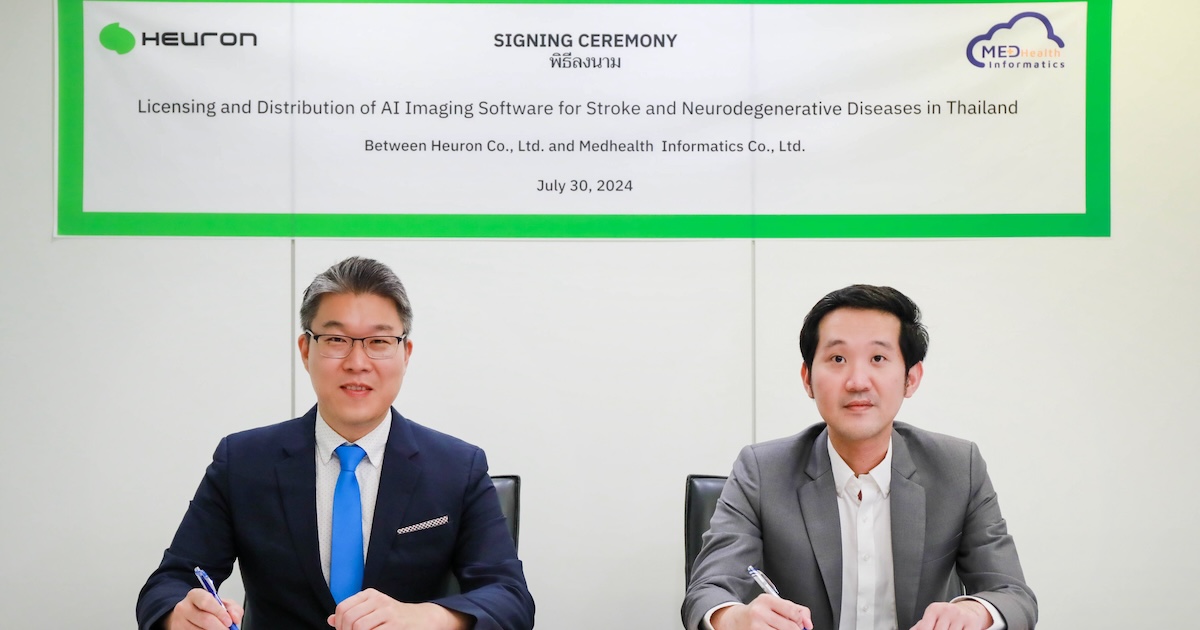Expansion of Medical AI Technologies in Asia: Advancements and Collaborations Highlight
In a significant move within the medical technology sector, South Korean company Heuron has announced a new distribution agreement to bring its advanced medical AI solutions to Thailand. This collaboration involves a partnership with Medhealth Informatics, a prominent AI software distributor in Thailand. Together, they aim to market three of Heuron’s main products: the Heuron StroCare Suite, a sophisticated stroke triage AI solution; Heuron AD, which offers quantitative analysis for brain atrophy; and the Heuron Brain PET, a PET tracer quantification software. The partnership also is focused on securing approvals from the Thailand FDA for these AI systems, signaling a strong move towards integrating these advanced tools into the Thai medical system.
Meanwhile, on another front, Indian digital health giant MediBuddy is tackling the prevalent issue of fraud in medical claims with its new AI-powered tool, Sherlock. This solution is designed to detect incidents of fraud, waste, and abuse (FWA) in real-time, thereby safeguarding the financial aspects of healthcare provision. By leveraging AI and data analytics, Sherlock can identify potential errors before they occur, including claim duplication, document tampering, pricing discrepancies, and compliance issues. Integrated into MediBuddy’s extensive cashless network, this AI tool not only flags suspicious activities through automated alerts but also promises substantial financial savings. According to Satish Kannan, co-founder and CEO of MediBuddy, this integration has already led to significant cost reductions, achieving a savings of ₹6.3 crore (approximately $750,000) within a single policy year.
On the regulatory front, another South Korean company, Vuno, has successfully obtained approval from the Korea Ministry of Food and Drug Safety (MFDS) for its heart failure screening AI software. The approved tool, Vuno Med DeepECG LVSD, utilizes AI to analyze ECG data to detect left ventricular systolic dysfunction – a critical early indicator of potential heart failure. This AI solution has demonstrated an impressive accuracy rate of over 90% across different types of ECG used in clinical trials. Vuno plans to incorporate this AI into its at-home ECG device, Hativ P30, which marks another step towards making sophisticated health monitoring more accessible to the general population.
Lastly, the Singapore-based diagnostics provider AsiaMedic has unveiled an AI chatbot implemented on WhatsApp designed to streamline the process of making diagnostic appointments. Faced with inefficiencies in the conventional method of scheduling which included calls and emails that often had poor response rates, AsiaMedic has enlisted the AI virtual assistant technology from Singaporean startup MIEA Health. This assistant not only enhances communication with clients by suggesting appointment dates and times but also allows for easier modifications to bookings directly through WhatsApp. According to AsiaMedic’s general manager Derrick Ong, this innovation is set to alleviate operational strains especially during peak months by automating these processes.
The advancements and deployments of AI in the medical field across Asia underscore the region’s move towards integrating more technology into healthcare. These developments not only aim to enhance the efficiency of medical diagnostics and services but also strive to tackle issues like fraud in medical billing, ultimately aiming to offer better healthcare outcomes and greater accessibility. This trend is likely to continue as more companies and healthcare providers recognize the potential benefits of AI in streamlining operations and improving the accuracy and reliability of medical services. These examples from South Korea, Thailand, India, and Singapore clearly illustrate the dynamic innovations occurring in the realm of medical AI across Asia.
#Heuron #expands #medical #Thailand #briefs



